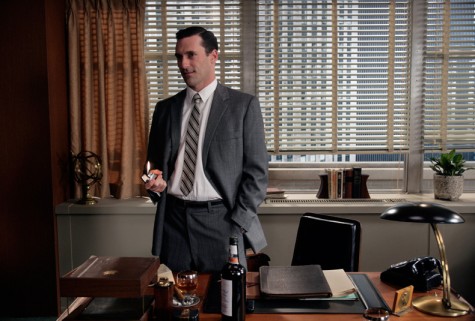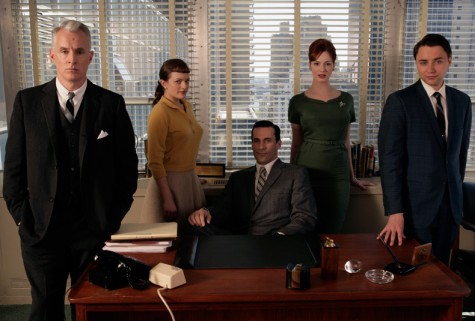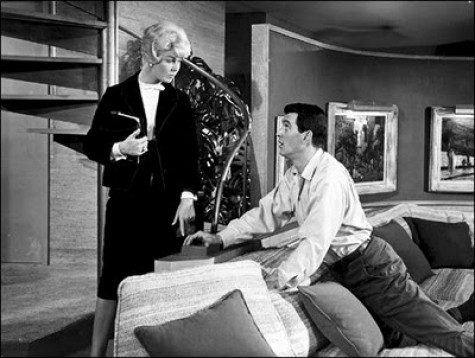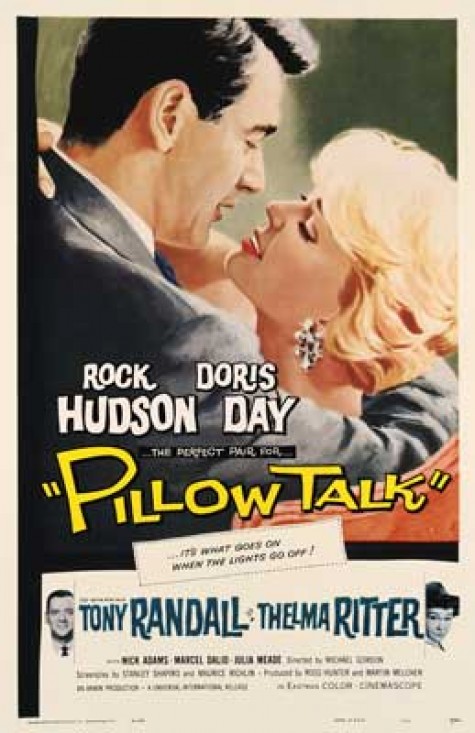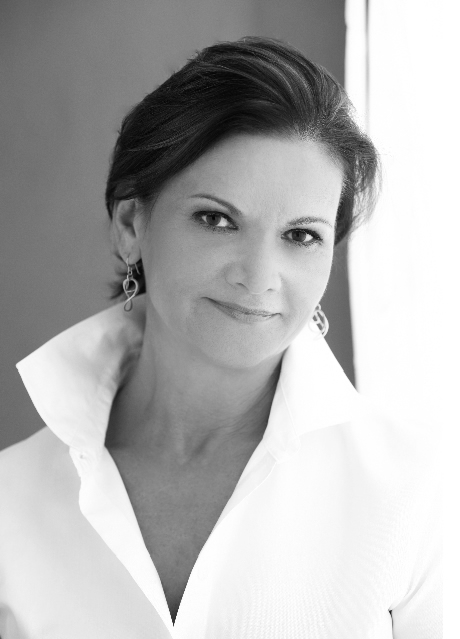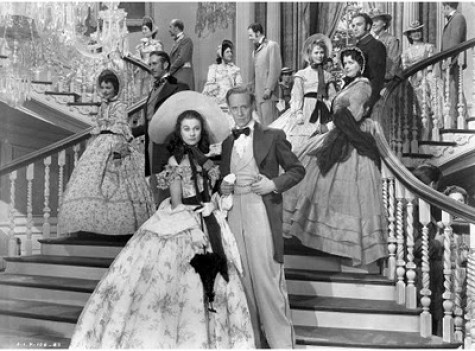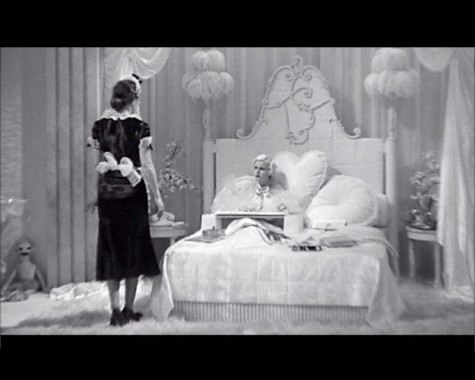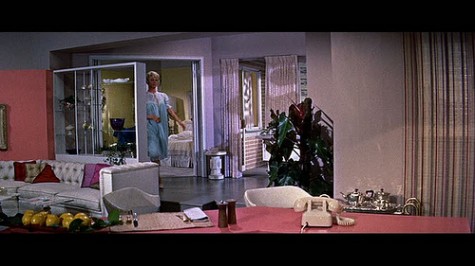In summers past, our reward for coping with insufferably hot temperatures and an endless parade of reruns on TV has been the return of a new season of Mad Men – the exploits of Don Draper and his cohorts at Sterling Cooper Draper Price Ad Agency offer an escape to the chic and sophisticated world of 1960s New York. Alas, this year the return of Don, Joan, Peggy, Roger, and company has been delayed until later this fall.
Never fear! The DMA has a cure for your Mad Men withdrawal. On Thursday we will kick off our summer film series, Pictureshow, with the classic 1959 romantic comedy Pillow Talk. Like Mad Men, the film takes place in Manhattan and is filled with stylish apartments and gorgeous clothes that would make Betty Draper swoon. The film is especially well known for its set design and is considered so “aesthetically significant” that it was added to the National Film Registry at the Library of Congress in 2009.
Cathy Whitlock will join us to introduce the film. Cathy is a Nashville-based interior designer, a journalist, and the author of Designs on Film: A Century of Hollywood Art Direction. Her blog Cinema Style explores the world of interior design and style in the movies. In preparation for her visit to Dallas, we asked Cathy about some of her favorite films and her own creative process.
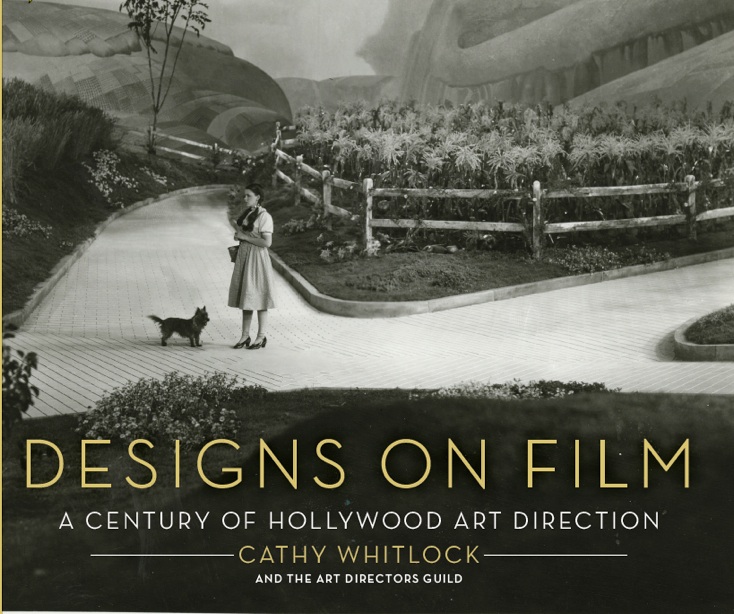
You write about the intersection of design and film on your blog Cinema Style and in your most recent book, Designs on Film. What inspired your love of the movies?
Ironically my first movie experience as a child was Pillow Talk and I was mesmerized with the interiors, fashion, and life in Manhattan. Apparently, the die was cast as I moved there years later and became an interior designer. I grew up in the sixties, which was such a ripe time for film – the Doris Day-Rock Hudson comedy “romps,” Cleopatra, 2001, The Graduate, and the James Bond franchise – and it left a huge imprint. Movies provide such an inspiration in so many areas as well as the ultimate two-hour escape!
Your blog and book cover films made recently as well as throughout the 20th century. Do you have a favorite era in the history of Hollywood?
Besides the sixties, I love the films of the thirties, as it was the time of big musicals (Fred Astaire and Ginger Rogers) and the “Big White Set” (such as Dinner at Eight). The decade ended with two of the biggest films of the century, The Wizard of Oz and Gone with the Wind.
How can moviegoers be inspired by the sets they see on screen? How can we translate what we see on screen to our own homes?
Often it can be something as simple as a color or a feel that inspires us. I have literally had clients pull out a DVD where they marked a certain scene and wanted to get the look. Thanks to technology, we can do that. What audiences need to remember is the rooms are almost always shot on a soundstage and on a budget and often we are responding to the overall “feel” of the scene. That being said, it’s pretty easy to pick out a few elements of a movie interior for use in our own homes.
Pillow Talk is a classic romantic comedy that stars Doris Day as an interior designer. What makes this film so iconic from a design standpoint?
I think it’s the overall design of the film – the interiors, Doris Day’s wardrobe, and Manhattan is very clean and carefree. From a design standpoint, the film literally gave birth to the “bachelor pad” and I am not even sure the set decorators got credit for that. They introduced the first electronic apartment complete with buttons that turn on the stereo, turn the sofa into a bed, and dim the lights. Now we call that a “smart house” but in the sixties it was pretty radical!
Where do you find inspiration for your interior design work?
I am a huge student of pop culture and find inspiration through a variety of places – music, museums, magazines, books – but, most importantly, film!
Join Cathy for Pillow Talk this Thursday at 7:00 p.m. She will sign copies of Designs on Film before the screening. Don’t miss the Museum’s collection of objects from the era of Mad Men and Pillow Talk – visit Form/Unformed: Design from 1960 to the Present in the Tower Gallery on Level 4.
Lisa Kays is the Manager of Adult Programming at the Dallas Museum of Art.
